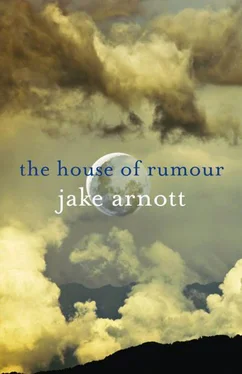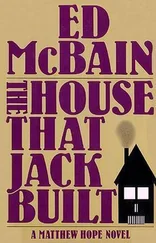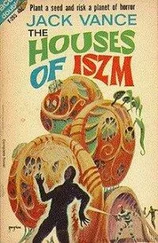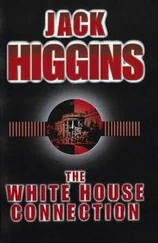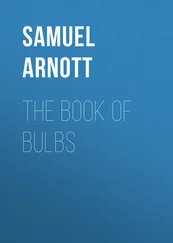Popov made a play of doubling back at a corner junction, passing by Fleming without looking at him but with a half-smile on his lips. Fleming stopped. He could hardly change direction now without giving the game away. Yes, it was definitely the game for Popov. And Fleming would be hard pressed to beat him at it. Paperwork, not fieldcraft, was his forte, he concluded gloomily. But cold analysis had its uses. He might have lost his quarry for now, but he had a very good notion of where he was headed.
Where else but the House of Games? The Estoril Casino, its grey, melancholy walls skulking amid more serene surroundings, looking like an office building or a workshop. Which indeed it was: the bureaucracy of bad luck, the sweatshop of short odds. The perfect setting, thought Fleming, as he passed through the vestiaire into the gaming rooms. He entered a theatre of calm excitement, filled with the repetition of muted sounds and stifled gestures. A static impersonal space, where anxiety and relaxation could be enjoyed in equal measure. A collective trance: where all are actors, all are audience to both shared and private dramas.
The Estoril Casino was the very hub of an enclave of neutrality where all sides in the war rubbed shoulders. It was peopled by many exotic species, which Fleming divided into flora and fauna. The flora were the refugees, various types from many nations. Some were wealthy beyond measure and squandered their money as if there was no tomorrow (as, indeed, there might not be). Others were so poor that they would gamble what little they had and sell anything, which usually meant themselves. The rest came to move unnoticed among them. What the flora had in common was that they were all waiting. Waiting for transport elsewhere, anywhere away from occupied Europe, and where better to wait than in the Casino.
Then there were the fauna: those who preyed on the flora. Businessmen, international officials, racketeers. And spies, of course. Agents and informers of all hues and natures. This was Popov’s world, where he so often operated. Fleming looked for him at the roulette table, knowing that it was here that Popov would go to get directions for a meeting with his German handlers. A female Abwehr agent would, at a prearranged moment, play the table three times, the numbers indicating consecutively the date, hour and minute of the rendezvous. She would then bet on either zero or thirty-six, the former directing him to a safe-house in Estoril, the latter to one in Lisbon. An expensive code, one that appealed to Fleming’s imagination. But Popov was not there. The chef de partie of the roulette table kept a tally of the numbers that had come up since the start of play that afternoon. Fleming studied it for a moment, wondering if any sense could be made of this list of arbitrary figures. Luck is a code without a key. As he looked up from it he spotted the Yugoslav making his way to the baccarat table.
Fleming had always preferred the familiarity of playing cards to the impersonal turn of the wheel. They offered some sort of meaning beyond mere chance. A sense of order: the Devil’s Bible with fifty-two pages (fifty-four if you included the jokers). He approached the crescent of players and spectators that surrounded the dealer. Bloch, a short, pug-faced Lithuanian, held the bank, which gave him the power to determine the stakes for the next play. Obscenely wealthy and arrogant, Bloch liked to dominate the card tables and was known haughtily to declare, ‘ Banque ouverte ,’ indicating that there was no upper limit and that the players could bet whatever they wished. It was suspected that the Lithuanian was a Nazi sympathiser who channelled illicit funds to bankroll Abwehr operations. Popov had taken a vacant seat at the table. Fleming stood behind him at his left shoulder.
‘ Banque ouverte ,’ Bloch announced.
‘ Les messieurs debout peuvent jouer ,’ called the croupier.
Popov reached into his jacket pocket and as he did so turned his head so that Fleming could see his sharp profile. It was as if he was acknowledging his shadow. The Yugoslav then swiftly pulled out his thick sheaf of banknotes.
‘Fifty thousand dollars,’ he said calmly and began to count out a pile of notes on the table.
The baccarat table at once became the focus of the whole casino, a hush sucking in sound from all corners of the room. Soon there was silence but for the clatter of the roulette ball and the whispered oaths of countless languages. Everyone watched as Popov slowly laid out his stake in one-thousand- and five-hundred-dollar notes. Fleming felt a slight swoon in his stomach, a brief euphoria at this dramatic moment, this coup de théâtre . Then nausea at the prospect of reporting how Agent Tricycle had lost a small fortune of government money at a gaming table. Bloch squirmed in his seat, clearly outbid and humiliated. Popov turned to the croupier.
‘I suppose that the Casino will back this man’s bet, since you didn’t object to his “ banque ouverte ”.’
‘The Casino never backs any player’s stake, sir.’
Popov huffed audibly and with a show of irritation swept his money off the table and stuffed it back into his inside jacket pocket. Fleming sighed. It was a joke. A game. Popov scraped back his chair and stood up.
‘I trust you’ll call this to the attention of the management,’ he said, addressing the croupier while all the time glaring down at Bloch. ‘And that in future such irresponsible play will be prohibited. It’s an insult to serious players.’
As he turned to leave he looked at Fleming briefly and smiled. Then he was gone. Bloch scraped together his stake money and scurried away in disgrace. Fleming found himself slipping into the vacant chair left by Popov, bemused that the Yugoslav’s outrageous performance had been partly for his benefit. He reached into his own pocket. He had fifty pounds sterling. It was all he had brought with him on this brief mission to Portugal. But the stakes on the table had now reverted to a reasonable rate, and were within his scope, at least for a while. Only a couple of players remained seated. The crowd of onlookers was drifting away, eager for some new spectacle now that the climax of the baccarat seemed over. The croupier looked bored as he snapped out the cards from the shoe, but Fleming’s mind buzzed with details and atmosphere, with ideas. All at once a germ of a story came to him. He became his other self, the empty hero who sleepwalked through his daydreams. A British agent pitted against the paymaster of a foreign power in a game of cards. Imagine if one could bankrupt the entire Abwehr in Portugal in one night? He gazed across at his opponents — mediocre men in creased dinner jackets — and imagined them as the enemy in a greater game. He felt an absurd thrill as he fingered his meagre winnings.
He ordered a whisky and lit a cigarette. He found that smoking incessantly seemed to enhance his prowess. He held the bank for a while and built up a sizeable stake. Then he lost it all when he should have passed. Bridge was more his game, where there was at least some sort of narrative. Baccarat was simply harsh numerology: Fleming tended to read the cards when he should be counting them. And it disturbed him that the court cards, the only discernible characters in the deck, had no face value in this game. He attempted a resigned grin at his fellow players when he once more lost a round. It was not acknowledged. He realised that the dull men who concentrated on an essentially banal strategy with such sombre diligence would consider him an amateur. It took him some time to lose all his money, but the point soon came where the tension lay merely in how long he might delay his annihilation. It was almost three in the morning when he was finally cleaned out. Yes, he thought, as he rose from the table, this was part of it too. Part of the story. The anxiety and nervous exhaustion, the tension of fear and greed, the very smell of failure.
Читать дальше
